

At 110 kilometers (68.3 miles) in length, the Stockholm Subway System is said to be the world’s longest art exhibit. Travelling by metro is like travelling through an exciting story that extends from the artistic pioneers of the 1950s to the art experiments of today. Over 90 of the 100 subway stations in Stockholm have been decorated with sculptures, mosaics, paintings, installations, engravings and reliefs by over 150 artists. What a fun and inexpensive way to explore the art and culture of an incredible city like Stockholm!
Below you will find a gallery that shows off the diverse artwork of the Stockholm Metro, along with some additional factoids about the artwork and history of the metro.
The photos below are via jesper.nu although no photographer is cited. Some further searching showed the same pictures used on various blogs but no original source for the photographs. If you know who took these please let us know in the comments below!
1.

2.
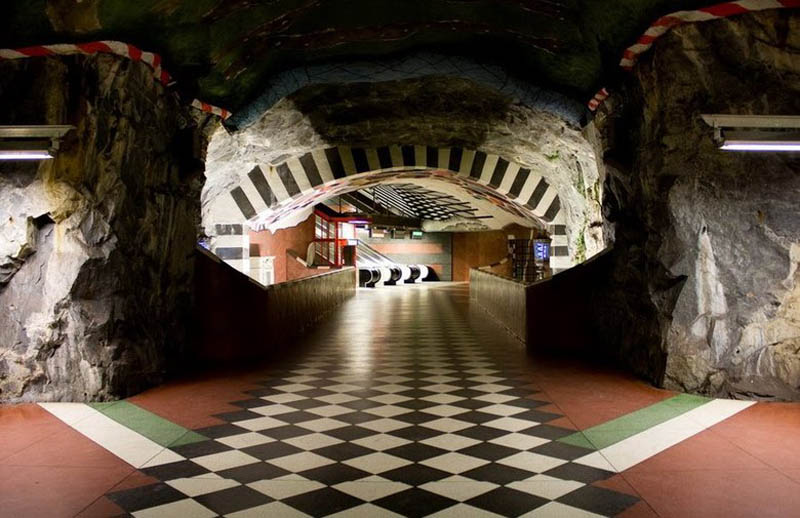
Underground travel in Stockholm goes back a long way. There were two tram lines running in tunnels between Slussen and Skanstull as early as 1933. The first “proper” underground train line – between Slussen and Hokarangen – was opened in 1950, but it took another seven years before the first artworks were installed. [Source]
3.

4.
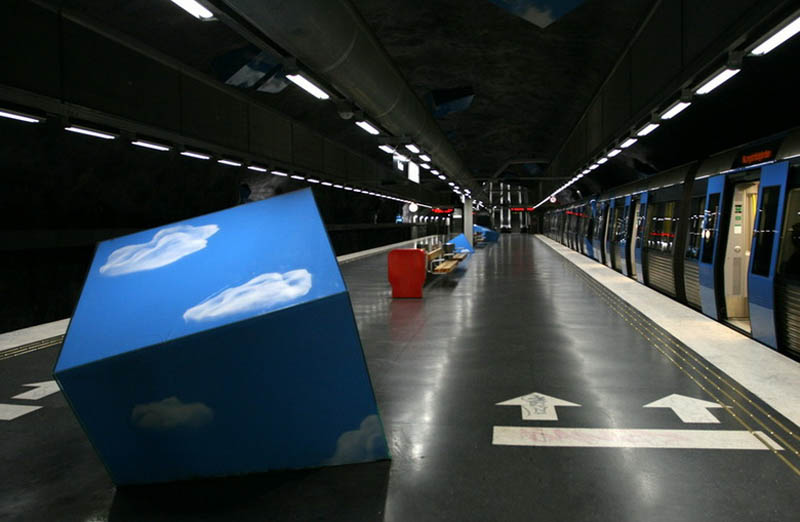
In the Stockholm of the 1950s artists Vera Nilsson and Siri Derkert were the prime movers behind the campaign to bring art to the Metro. On 18 April 1955 two motions on art in the Metro were submitted to Stockholm City Council in quick succession, the fi rst by the Left Party, the second by the Social Democratic Party. The motions attracted cross-party support and work was able to begin. [Source]
5.
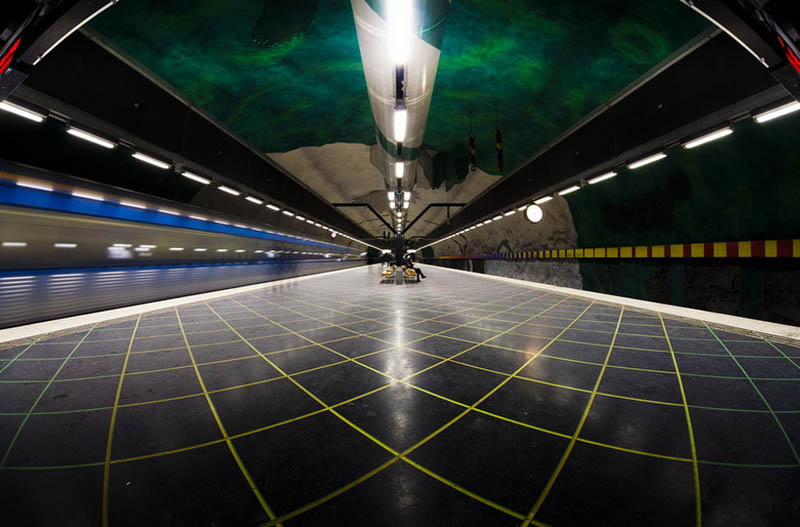
6.

Many of the 1950s stations were designed by Peter Celsing. He was the chief architect of the Stockholm Tramways, Stockholm’s Sparvagar, from 1948 to 1952 but is probably better known as the architect behind Kulturhuset, Riksbanken and Filmhuset. [Source]
7.
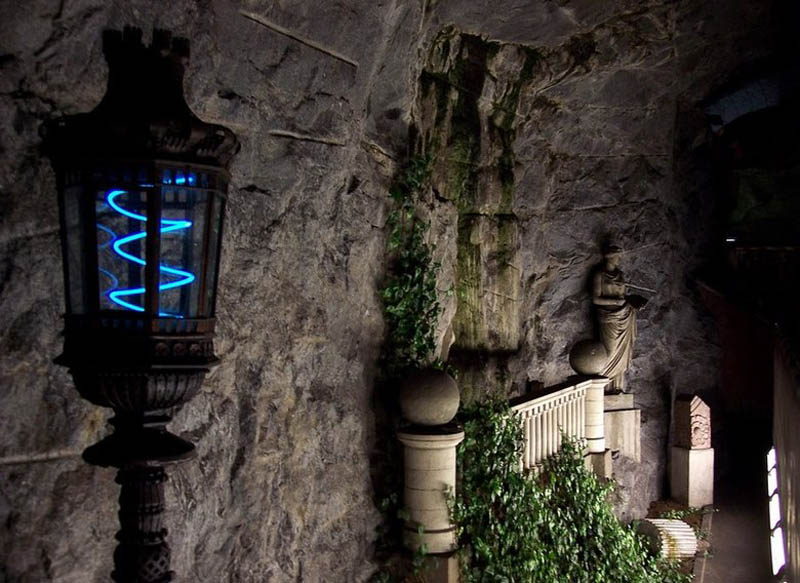
8.
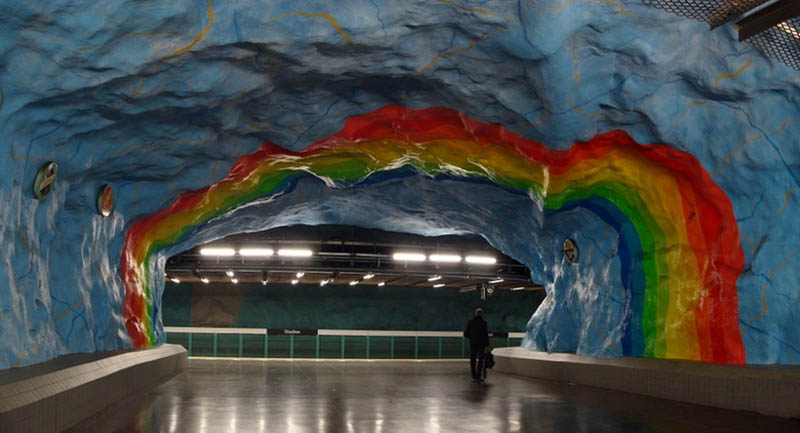
Most of the 1960s stations were built below ground, with only a few above ground. 1960s stations that incorporated art from day one include Ostermalmstorg, Mariatorget, Hornstull and Malarhojden. Stations that gained art at a later date, but whose architecture is typical of the 1960s, include Zinkensdamm and Aspudden. [Source]
9.
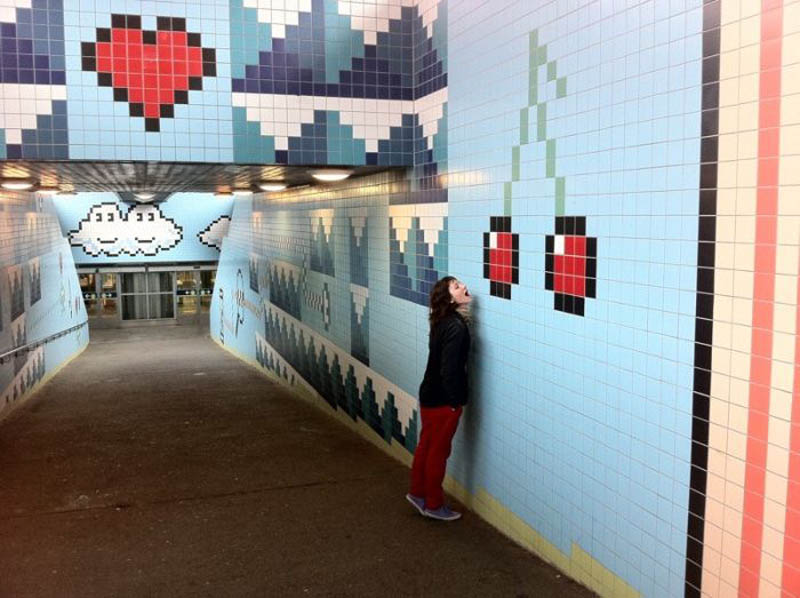
10.
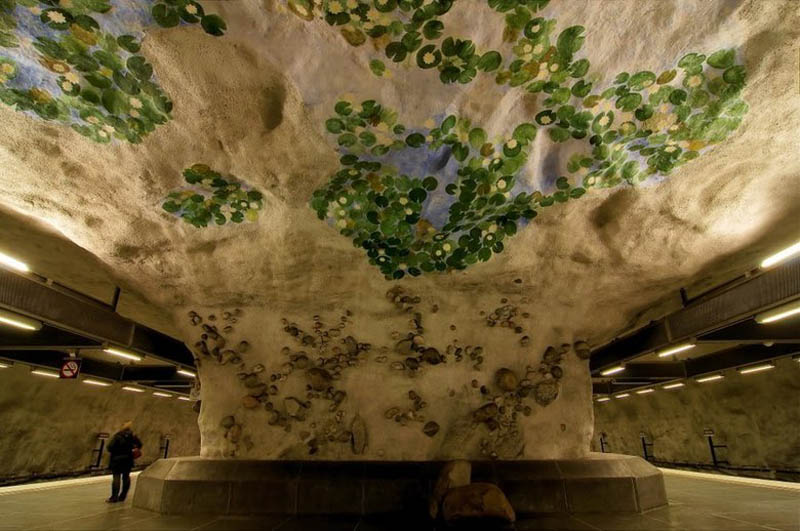
Instead of cladding the rock in concrete, as during the 1960s, in the 1970s the approach was to cover the rock face with a layer of sprayed concrete 7 to 8 cm thick. The water was drained away in pipes behind the concrete. The sprayed concrete follows the shape of the rock, giving an illusion of a station in a cave. The first station to be built using this method, Masmo, was completed at the end of 1971 and began to be used in 1972. [Source]
11.
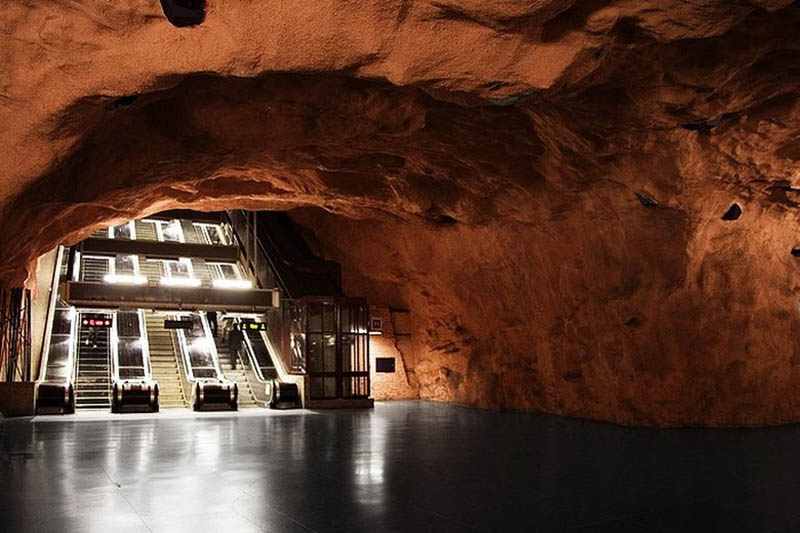
12.

The typical Metro art of the 1970s included stations designed as a coherent whole, with artists working in long-term partnerships with architects and engineers to create complete environments rather than individual artworks. 1970s stations include Rådhuset, Kungsträdgården, Solna centrum, Näckrosen, Alby, Bergshamra, Rinkeby and Tensta. [Source]
13.

14.

An important part of SL’s work is to focus on art that is being created now, today. In many cases this is art created by artists who use techniques that would not survive long-term in the tough environment of the Metro – graphics, drawings, paintings and textiles. SL also wants to give more artists the opportunity to show their work in the public space of the Metro, despite no new stations currently being built. Therefore in six of the stations the temporary art is replaced 1 – 4 times a year. [Source]
15.

16.

17.

18.
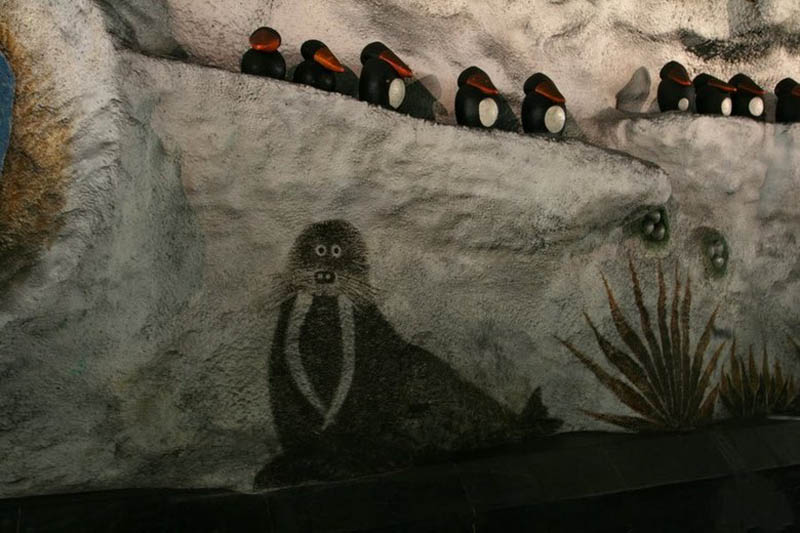
19.

20.

21.

22.

23.

24.

25.

26.
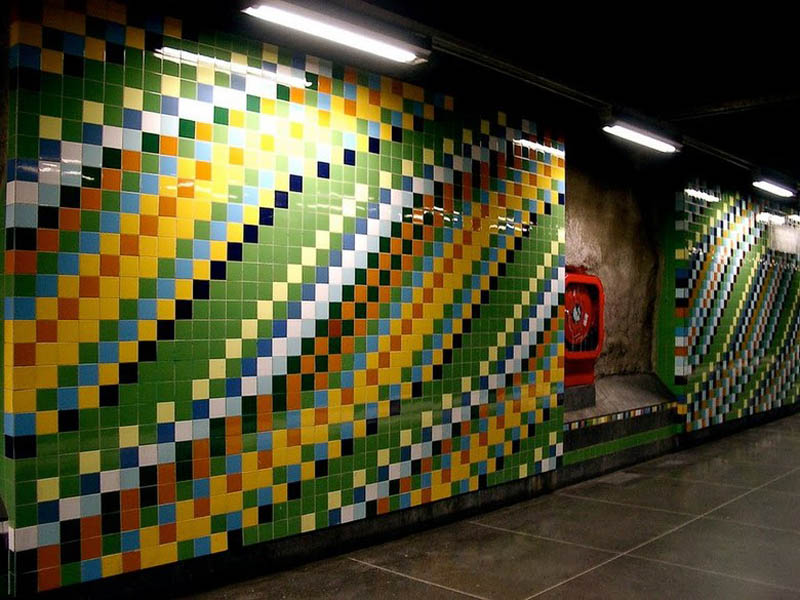
27.

28.

29.
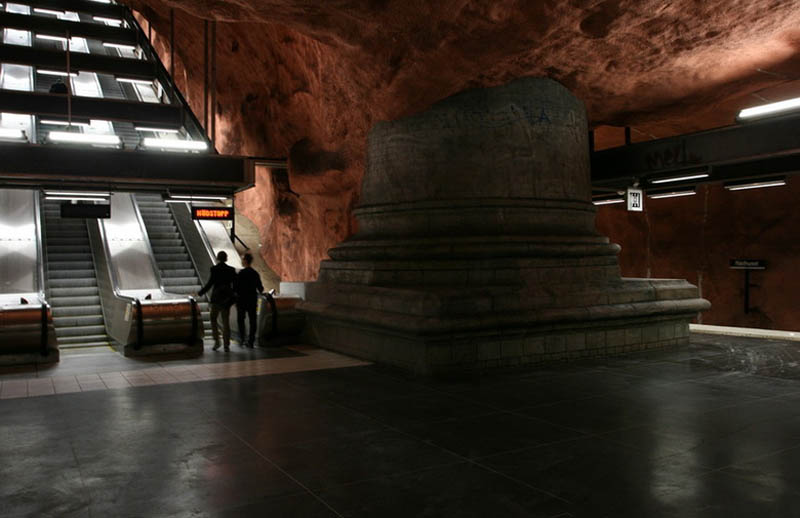
30.

31.

32.

33.

Since 1997 SL has been running regular guided tours of the art in the Stockholm Metro. Each week they travel along one of the Metro lines, visiting four or five stations at a time. During the trip one of their expert, qualified guides will tell you more about the art, the architecture and the artists behind the works. If you were to go on all of the guided tours for a whole year, you would visit over 90 stations and see art created from the 1950s to the present day. There is no extra charge for the guided tours, but you will need a valid ticket in order to join. The tours are in Swedish all year round, with English tours available in the summer. Pick up a timetable at the SL Center or download one from www.sl.se/konstakningar





